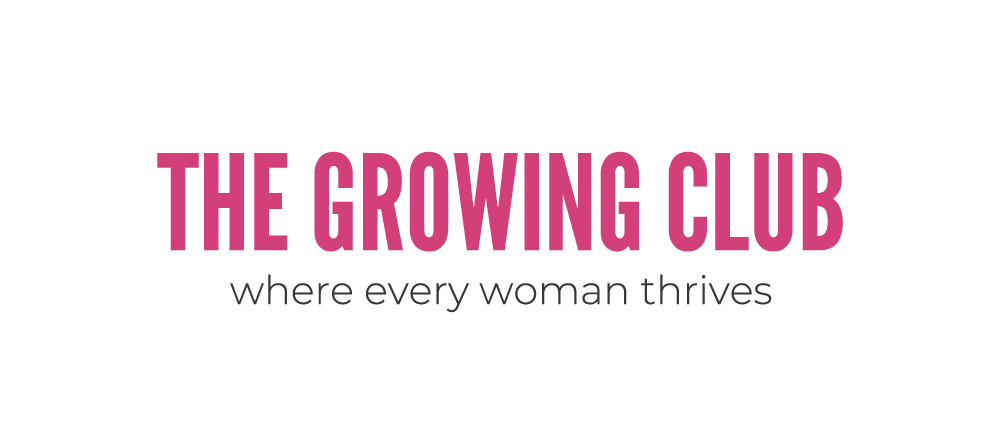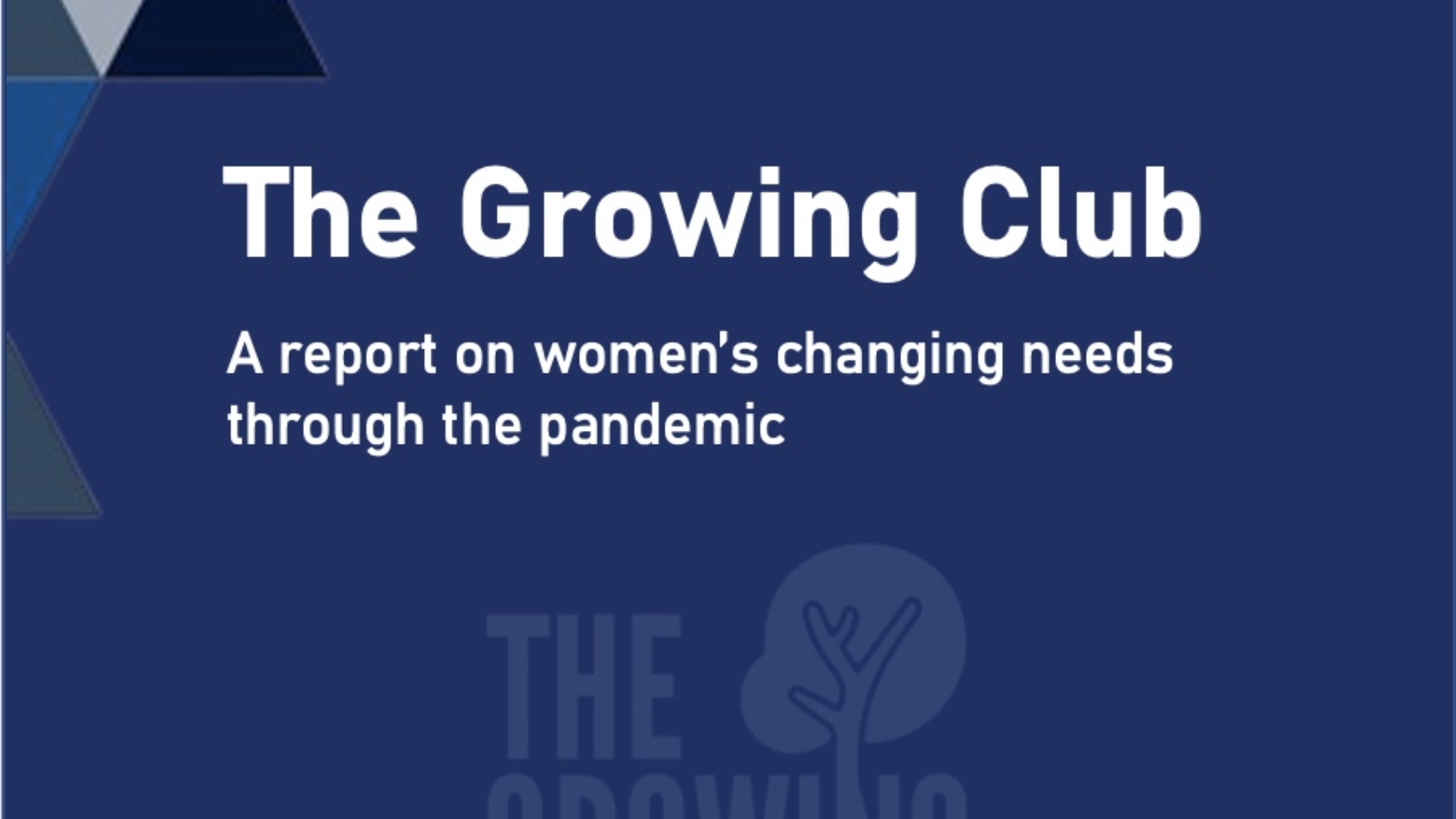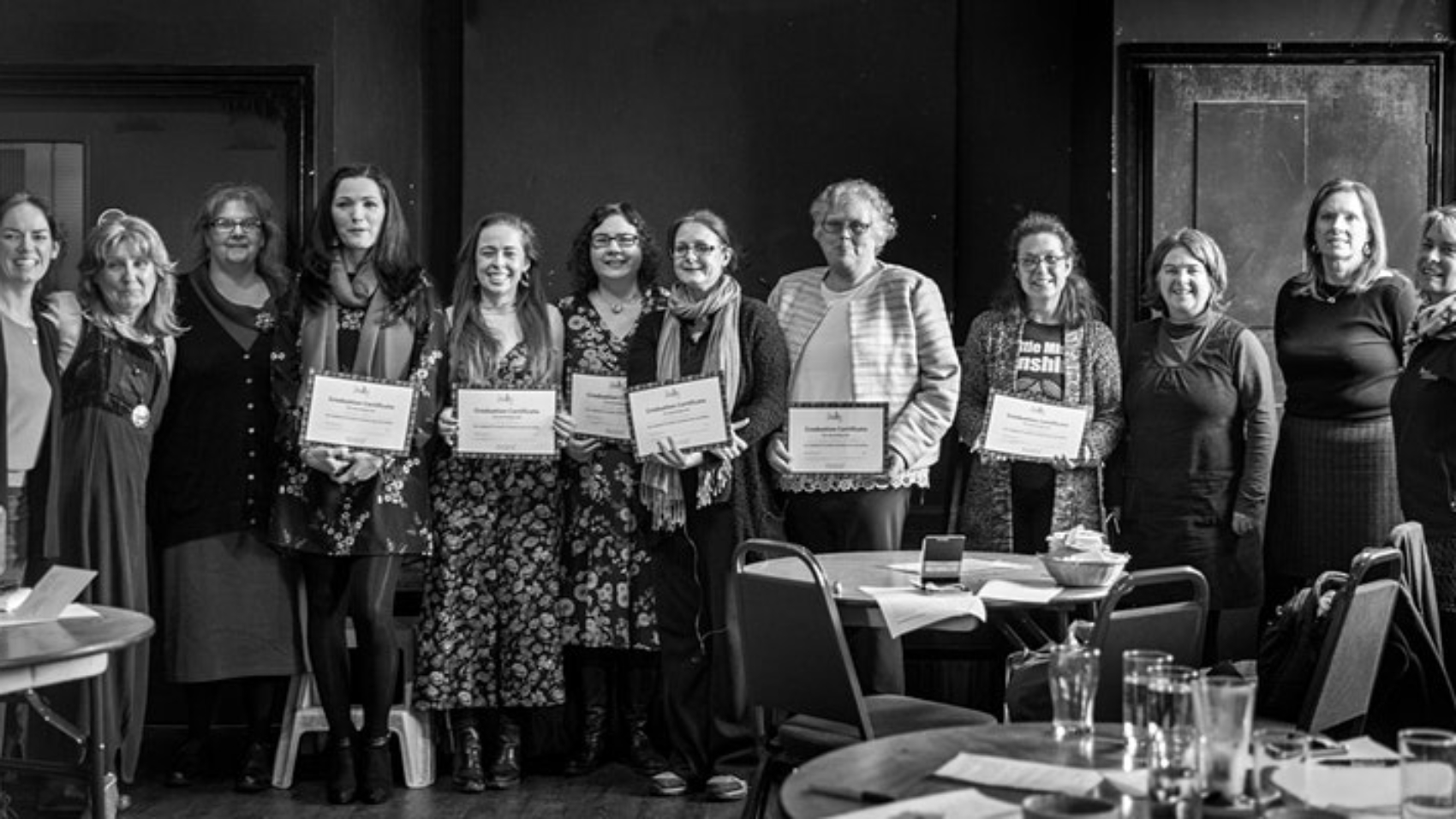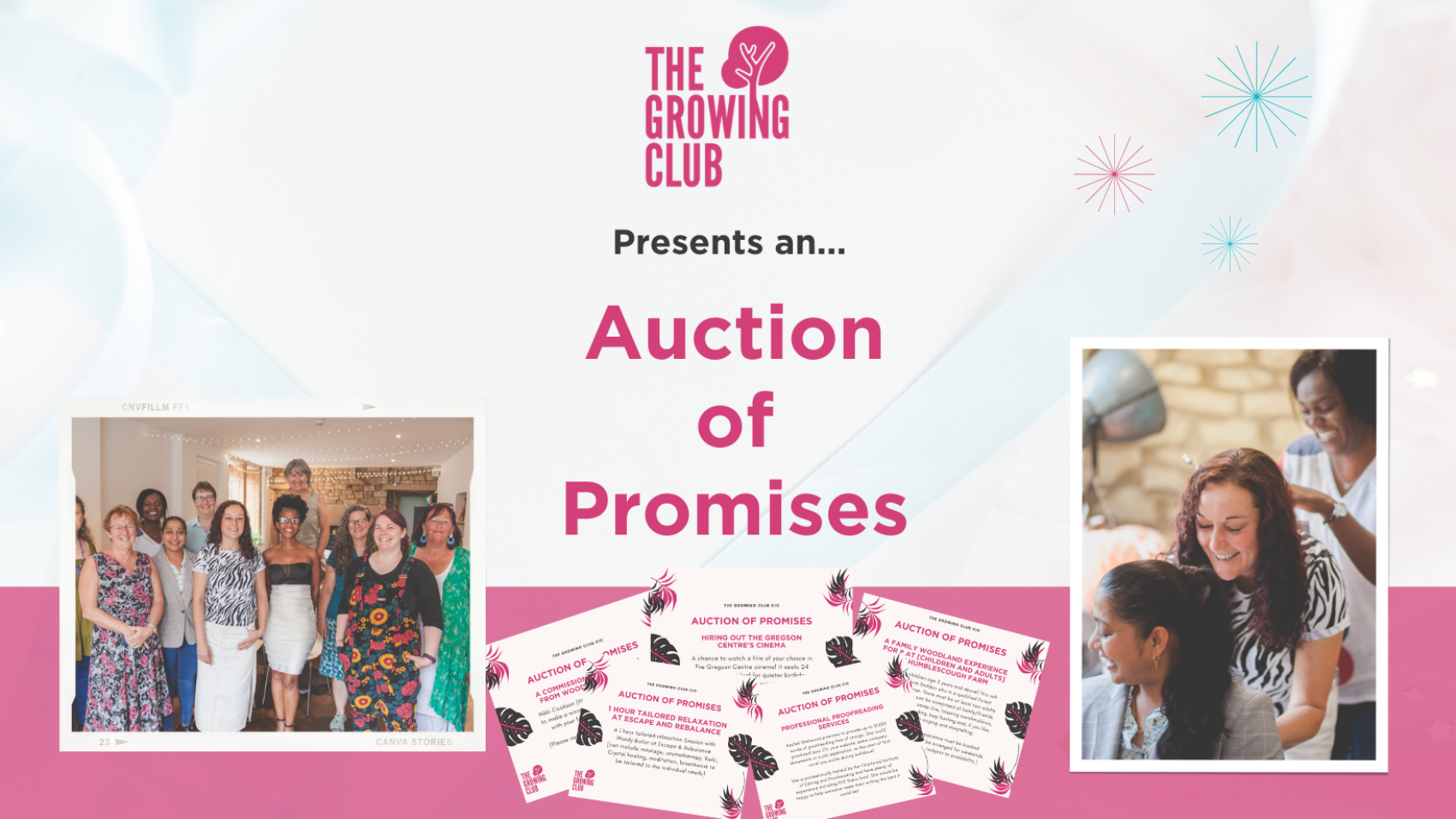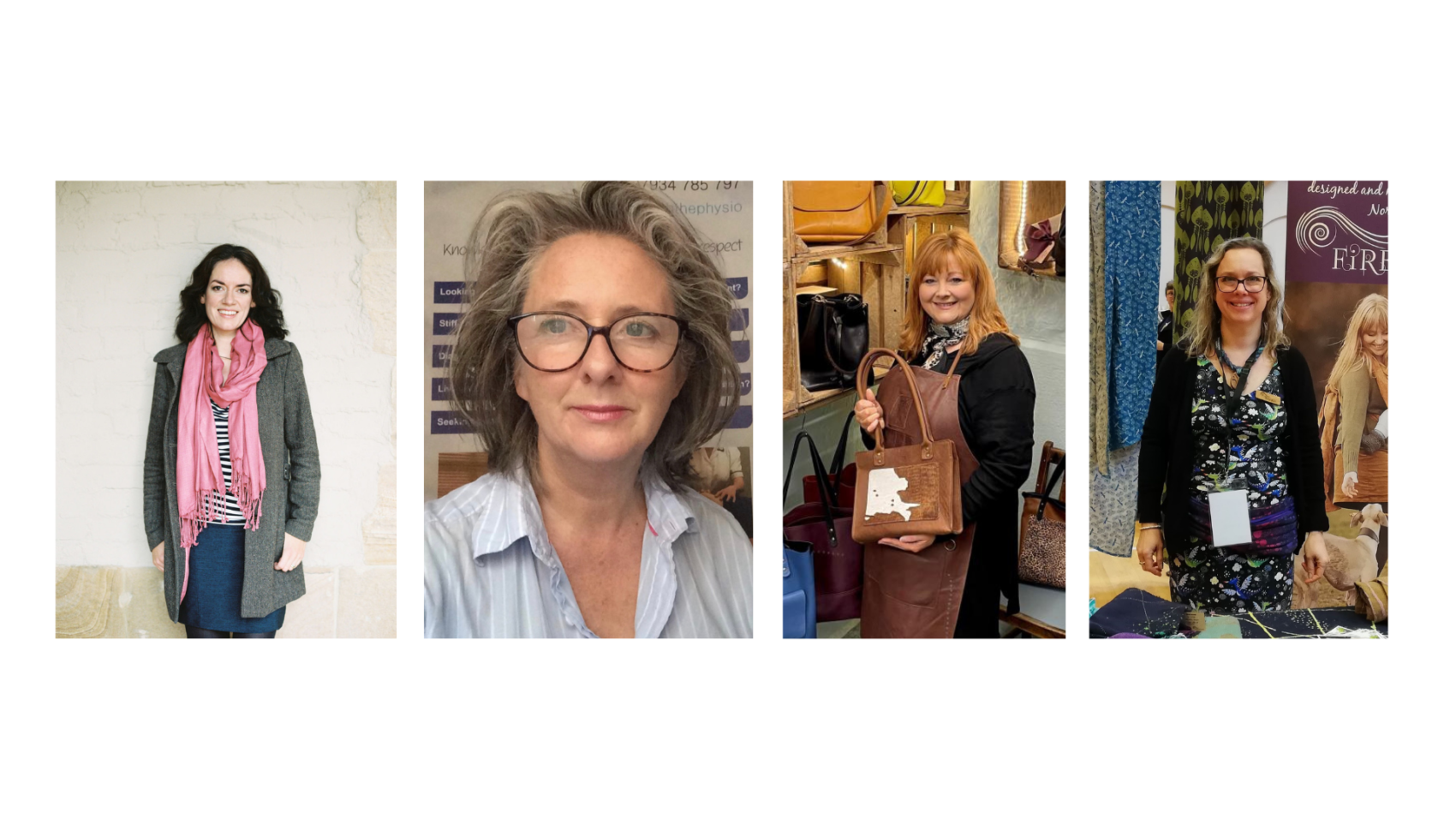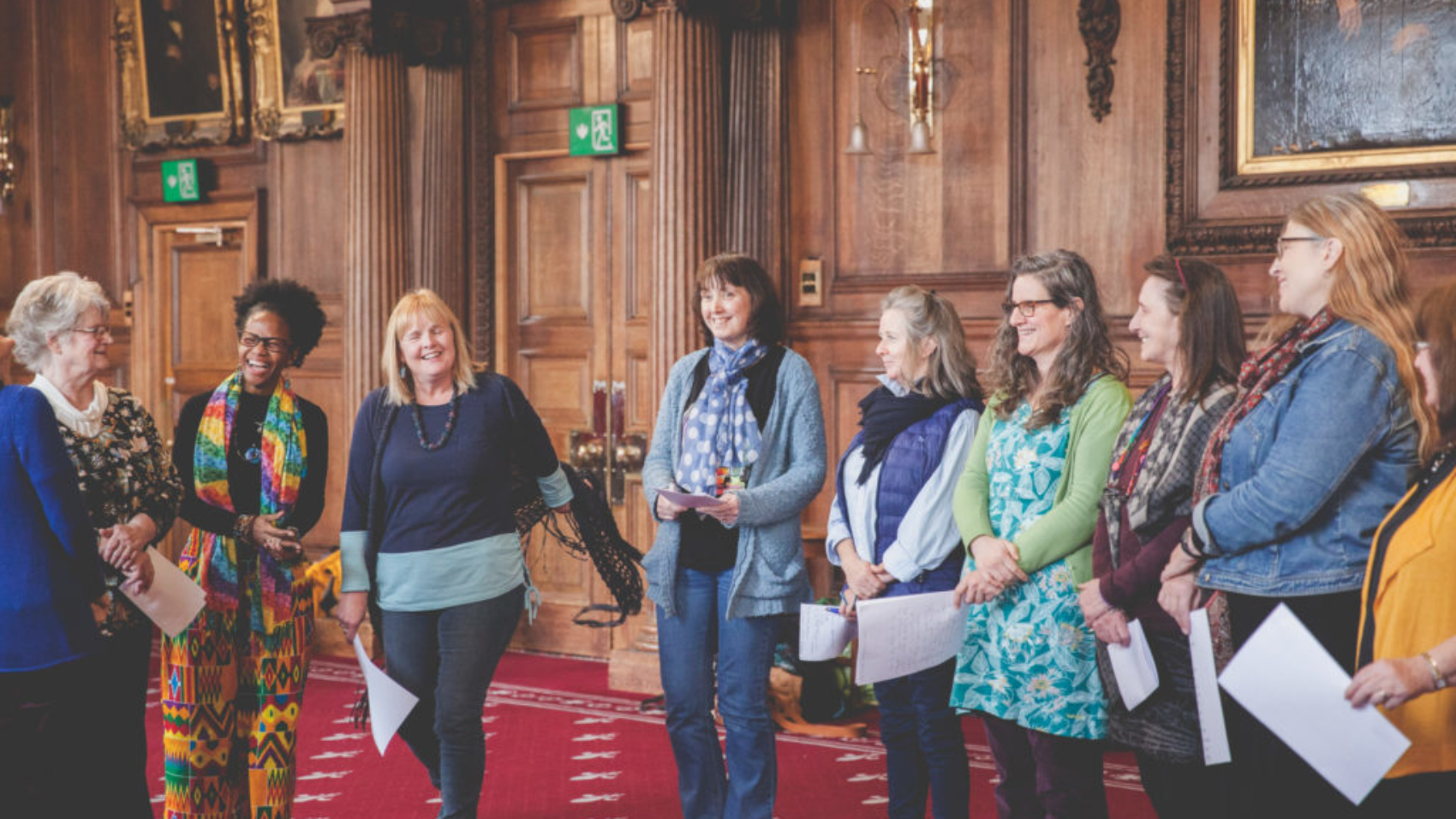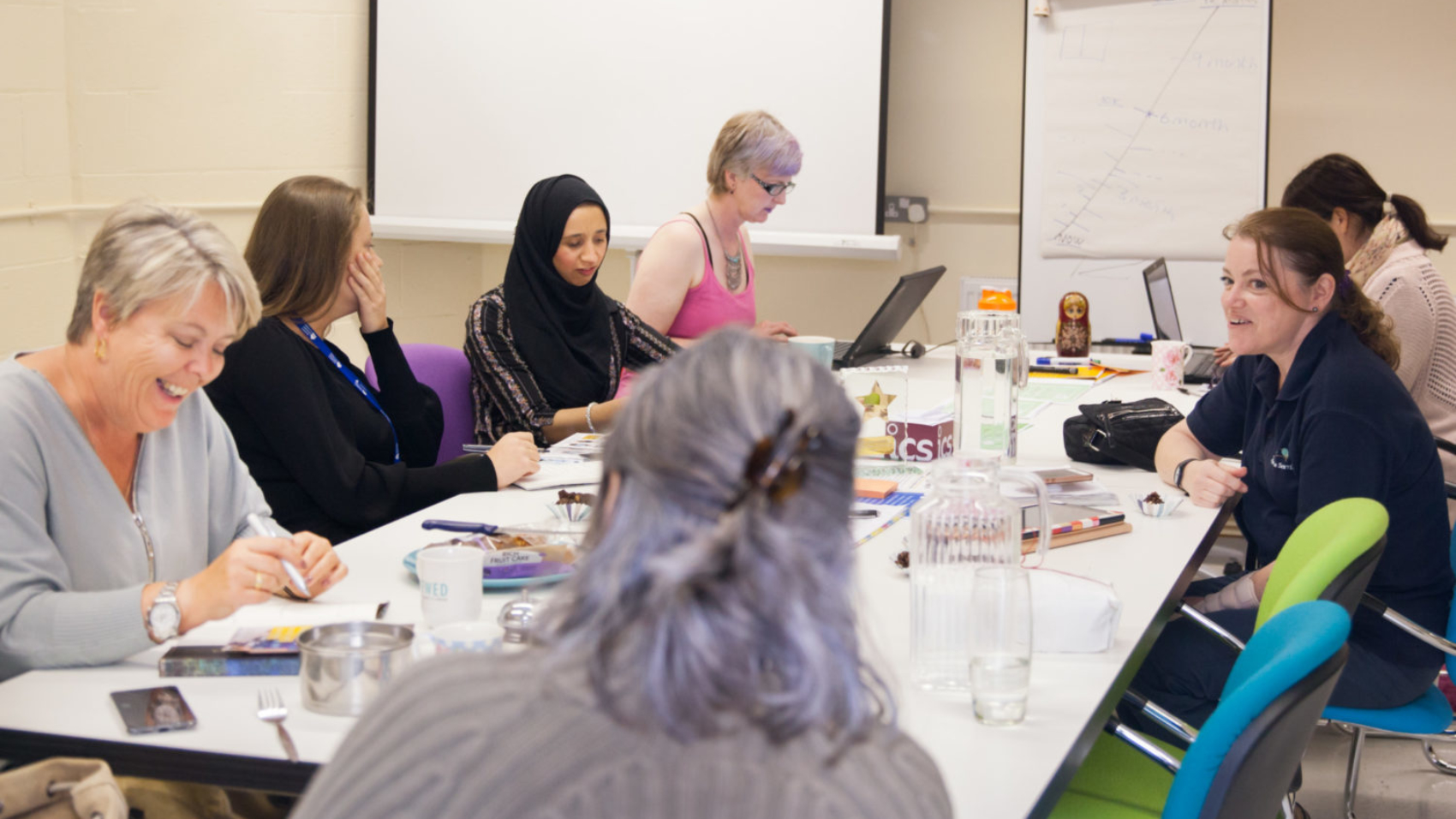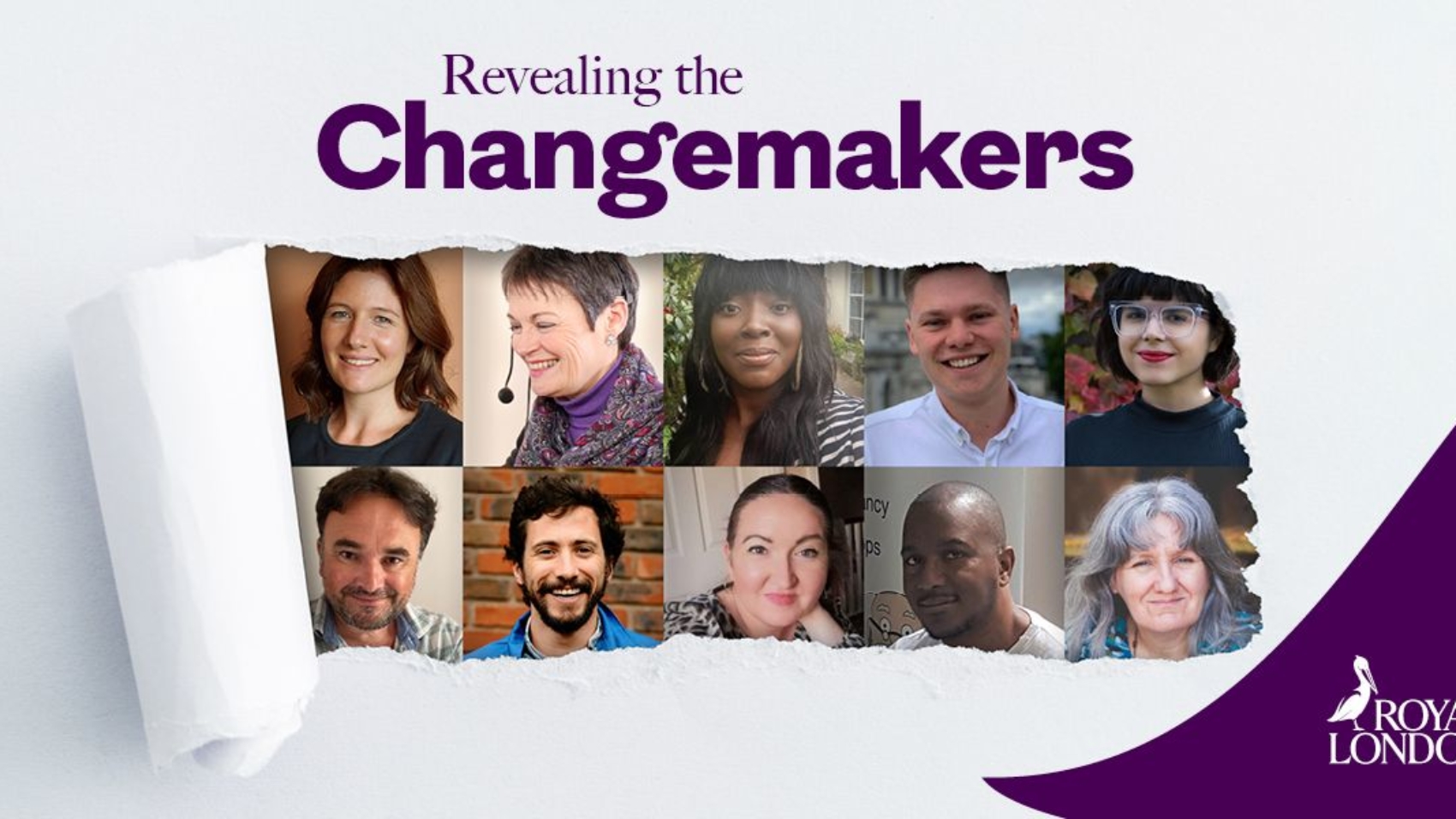We recently had a new report commissioned, to identify the changing needs of women in the district during Covid 19 pandemic. The findings suggested that women now have a greater need for social connection than previously, along with increased concerns about wellbeing and finances.
Wanted: Growing Club Mentors!
Our successful mentor training programme is running again, aiming to train existing women in business to support other women who are beginning their business journey with their own startup, after they complete their Roots and Shoots programme.
Can you help with our Auction of Promises?
We need you!
If you have received support from The Growing Club CIC in the past, or maybe you just like what we do, we need your help so we can help other women to succeed through our Auction of Promises.
You may know that the New Enterprise Allowance (NEA) ended in December, meaning people on benefits no longer receive financial or practical support from the Department of Work and Pensions to start a small business. That means many women who would have liked to use their skills and experience to become self-employed, now face a further hurdle, and if we don’t address this, starting a business will now only be an option for those with capital.
On May 20th, we are holding an Auction of Promises to build a seed fund to support women in hardship with their basic business start-up costs.
So where do you come in?
There are 4 things you can do to help us…
1. Offer a promise that people can bid for. That can be anything from offering your professional services, homemade baked goods or even a night away. Some promises we’ve already received include:
- a handmade leather journal cover from Tinbox Angel
- one hour of holistic therapy from Escape & Rebalance
- 3 x hours of photography tuition from Ginny Koppenhol Photography
- a romantic night for 2 at Castle View in Lancaster
2. Come along to the Auction evening for a fun night out and bid for things you want (it’s a great way to buy unusual birthday gifts). Book your tickets here.
3. Offer a raffle prize.
4. Tell your friends, family and network and get them involved.
Our aim is to raise £10,000 that women can pitch for at our Autumn Angels’ Den event
We have already received an amazing donation of £1000 from the Zinthiya Ganeshpanchan Trust to start us off!
Details of the Auction of Promises
What? An Auction of Promises
When? 20th May 2022, 19.00hrs – 23.00hrs
Where? The Gregson Centre, 33-35 Moor Gate, Lancaster, LA1 3PY.
You can book your tickets on Eventbrite here and download a flyer here.
If you are interested in offering your own promise, please download and fill out this Auction form and
return it to:
The Growing Club,
605, Alston House,
White Cross, LA1 4XQ.
or email it to: admin@thegrowingclub.co.uk
Alternatively, you can call the office at 01524 383848 and your donated promise can be logged over
the phone. Everyone who donates a promise will receive a free ticket to the event.
We’d love your support in whichever way you can help us!
Team GC
Auction of Promises!
On the 20th May 2022, The Growing Club CIC are organising a fundraising event – an Auction of Promises – where donated promises are auctioned off, with money raised to create a Seed Fund to support women’s business start-up costs.
Where Are They Now?
As part of the celebrations for International Women’s Day 2022, we spoke with four women who took part in the first-ever cohort of The Growing Club CIC’s business training course in 2015. The programme is now called Bloom and Grow, helping women who are running their own businesses to do it sustainably and with strong peer support.
The Art of Grasping Nettles
A blog on courage, preparation and giving it a go by Jane Binnion
When I bottled my first brew of nettle cordial years ago, it was an experiment. I’ve been making nettle soup for many years because it’s highly nutritious and I just love free food, but this was a first for me and I had no idea how it would turn out.
Sometimes we have to do that though, right? We just have to have a go and see how it turns out even if we know we might get stung in the process. However, we can do things to minimise the pain too.
Courage yields results
Of course, nettles hurt. I fell into a ditch of nettles several years ago while cycling in rural China. It’s pretty nasty and hurts for a long time afterwards too. I still get stung when I’m picking nettles for soup, but I seem to have decided that it’s worth it.
But it got me thinking about the expression grasping nettles and what that means for those of us running a business or charity. It’s an expression that’s very meaningful to all of us. We know exactly what it would feel like to grasp nettles. So why on earth would we deliberately do it?
Well, there are a few reasons. If we don’t, they keep on growing anyway, but also look at what happens when we do pluck up the courage to grasp them. We may get stung but the results are great. When I eat this delicious soup or drink the cordial I can remember the stings, but I still feel really delighted with the results.
We can prepare ourselves for nettle grasping. It isn’t necessary to just rush in. Taking time to get organised can make it all a lot less painful. Nettle grasping is not an opportunistic task. If I was walking past a great crop wearing shorts, sandals and a T-shirt, I know that diving in would end horribly. When grasping real nettles I wear gloves, long sleeves and take scissors.
What are the nettles in your business or organisation that you need to grasp?
- What is it that scares you about doing it?
- What can you do to minimise the pain?
- What will be the positive benefits of finally grasping those nettles?
- Do you ever send others to grasp nettles unprepared?
As for the cordial, it was actually really nice. It’s very refreshing and far better than any bottled cordial you can buy. Well worth a few stings.
If you’d like to chat about how we can help you to overcome any fears or issues in your business, please do drop us a message here.
*This post was originally published on janebinnion.com and has been reproduced here with permission.
Voices From The Frontline: A Film
Lancaster’s The Growing Club CIC has launched a short film as part of the Lancashire Innovation Festival. Voices from the Frontline is a thought-provoking film by women aged 50-plus – as business owners and employees – on their hidden skills and daily triumphs.
Just before lockdown hit, a group of women aged 50-plus came together to work with The Growing Club CIC for two days. This project was funded by Rosa, and aimed to share the women’s experiences, reflect on their life journey, skills and create a short film. The team comprised of Alison Cahn and Frances Bowen of Forgebank Films, photographer Ginny Koppenhol and group workers Jacqueline Harris and Jane Binnion.
The Growing Club CIC is a social enterprise based in Lancaster, designing and delivering employment and enterprise training and support, especially for women, from skills to startup, to sustainable business growth training.
Societal changes
The Pensions Act (2011) changed the age range for women receiving a pension from 60 to 66. This is a critical issue that has caused much debate, along with social and financial difficulties. Women have rich skills and experience, they feel more confident, and they want to be able to continue to work and share their knowledge and expertise.
Conversely, societal attitudes towards older women have not changed. This means many more women have ended up unemployed, or are expected to take on low-paid insecure work. This has resulted with more women in poverty. The week before the film launch, Prospect Union shared research that showed there is a 37.9% difference in retirement pay between men and women. Much of this is due to the fact that many women become unpaid carers at some point in their life and career.
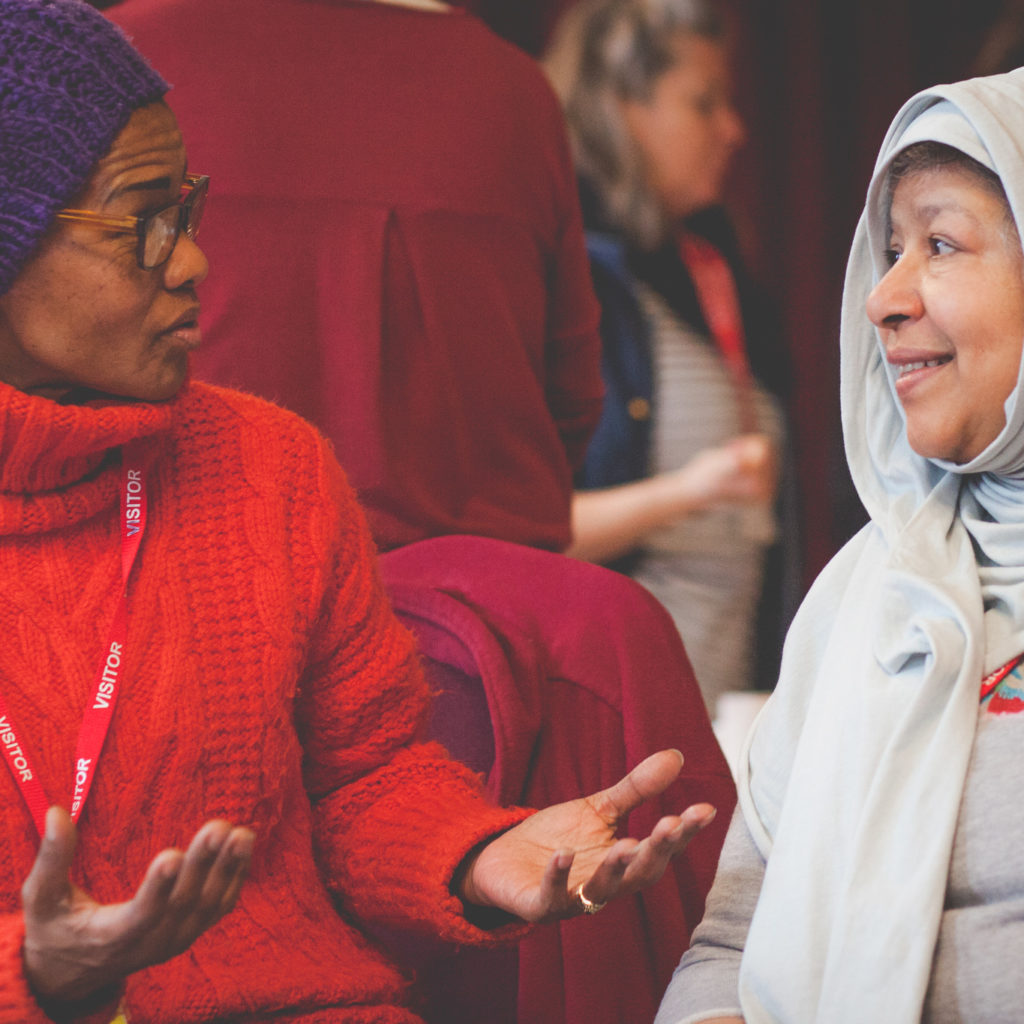
The women explored issues surrounding this age bracket, with the group identifying commonalities in themes. These centred around: caring responsibilities and support, being economically viable, the scant information available for women moving from being a stay-at-home parent into work and business, opportunities and networking being made available, easy and visible for women over 50.
Women’s experiences
Women who took part in the filming spoke on the issues they have faced:
“If I applied for a job at my age, I wouldn’t get looked at because if you’re looking at IT jobs for women, they’re within a certain age band…I would like to contribute more to society. I do some voluntary work, but I just feel as though I’m not at the end of my working life yet.”
Shirley
“There’s such a wealth of knowledge, experience, that we can share with people who are younger than us.”
Jennifer
“I want to teach children because there’s a generation gap in education, especially in arts and crafts. There have been so many cuts and people just don’t learn anymore. I think it’s important. In my job, I organise workshops to try and pass on those lost skills.”
Gabriella
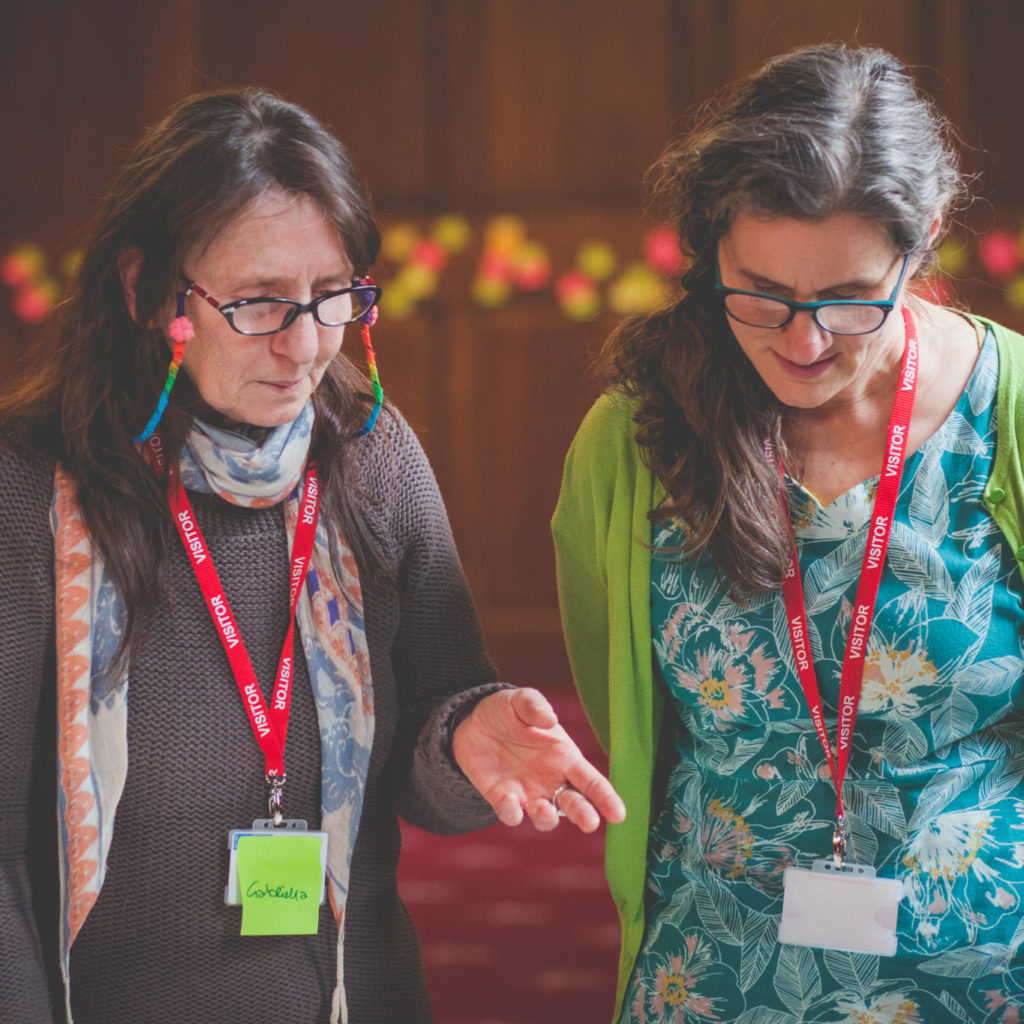
Lancashire Innovation Festival
Voices from The Frontline film was launched in October 2021 at The Dukes Cinema in Lancaster, during the Lancashire Innovation Festival. The festival aimed to showcase social innovation as the design and implementation of new solutions that demonstrate conceptual, process, product, or organisational change. Ultimately, this aims to improve the welfare and wellbeing of individuals and communities.
“We wanted to make the film to explore the issues of female eldership, which is valued in some societies and not others, and to highlight the issue of wasted skills and talent. This is even more relevant now with current skills shortages”
Jane Binnion, managing director of The Growing Club
At the film launch, Jacqueline Harris led a discussion in small groups, enabling all to take a new look at how the social issues raised could be addressed. Feedback from the film launch included emotive words such as “powerful,” “enlightening” and “humbling”.
People also were asked what they might do differently as a result of seeing the film and participating in the discussion. Examples of comments received were: “I will value older people’s back story”, and around learning to ask questions differently on the values and many roles that older women have played, and the resulting experience they can bring to the table. Members of the audience were alarmed at how so much skill and experience is simply wasted as a nation. And additionally, the lost opportunities there are when employers hold a limiting mindset as to what skills are valuable.
Many of the older women present at the launch reported that they felt more confident and hopeful. They stated they will approach things differently going forward, recognising what skills they have developed, rather than writing themselves off.

Meet Rebecca Batstone: The Growing Club’s Coach & Trainer For Women In Business
Rebecca is a Personal and Business Coach and runs her own practice, along with being a one-to-one coach and business mentor for The Growing Club CIC.
Pay-It-Forward Grant for Female-led Lancashire Businesses
Jane Binnion talks about a Pay-It-Forward grant scheme operating for Women in Business in Lancashire, to help startups & existing businesses.
Growing Club Stories: Rebecca Young
Rebecca Young hopes to set up a web design business, with the aim of supporting the work of individuals, small businesses, and non-profit organisations, particularly those in the arts and culture sector.
Pop-In To Drop-In!
Nicola Combe talks about the weekly face-to-face drop-in support that she hosts for The Growing Club CIC on Thursdays, and how it can benefit you, your business and learning.
We Are Changemakers!
The Growing Club is thrilled to have been chosen as one of ten changemakers in the UK and Ireland, to collaborate on a Changemakers programme, with a committed £1.5 million over three years to support social enterprises that have created bold and innovative ideas to improve resilience and protect against financial life shocks, such as illness, divorce or change in income.

